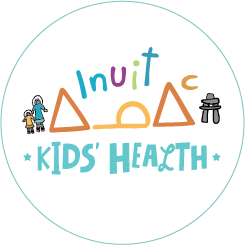ᐊᔅᓱᐊᓘᓕᕐᖓᑦ, ᐳᐊᑎᑮᑦ, ᓄᓇᖃᖅᑳᖅᑐᒥᓂᑦ ᖃᓄᐃᑦᑐᑐᐃᓐᓇᑦᑎᐊᑦ ᐃᓄᑐᐊᖑᔮᓕᕐᖓᑕ ᐊᔅᓱᕈᓐᓇᖅᑐᒃᑰᓕᖅᑐᑎᓪᓗ ᓯᓚᕐᔪᐊᒥ ᓲᕐᓗ ᐳᕝᕕᕆᓐᓈᓗᑦᑎᑐᑦ, ᐅᓇᑕᕕᔾᔪᐊᖅᑐᐊᓗᓐᓂᒃ ᐊᒻᒪᓗ ᐅᕕᓂᖃᑎᒋᓐᖏᑕᒥᓂᒃ ᐊᑭᕋᖅᑐᖅᑐᓂᒃ ᐱᑕᖃᓐᓂᖅᓵᓘᓕᕐᖓᑦ ᖃᕋᓴᐅᔭᒃᑯᓪᓗ ᖃᐅᔨᒪᖃᑦᑕᐅᑎᔪᓂᒃ. ᑕᐃᒪᐃᓐᓂᖓᓐᓄᑦ, ᐃᓚᒌᑦ ᑲᓱᕋᓱᒃᑲᓂᕐᖓᑕ ᐊᒻᒪᓗ ᐊᖏᔪᖅᑳᕆᔭᐅᓪᓗᑎᑦ ᕿᑐᕐᖓᓖᑦ ᑐᑭᓯᒋᐊᕈᑎᓂᒃ ᖃᕋᓴᐅᔭᒃᑰᖅᑐᓂᒃ ᑭᒃᑯᑐᐃᓐᓇᕐᓄᑦ ᑐᑭᓯᒋᐊᕐᕕᐅᕙᑦᑐᓂᒃ. ᑭᓯᐊᓂᓕ ᐊᖏᔪᖅᑳᕆᔭᐅᔪᓄᑦ ᖃᕋᓴᐅᔭᒃᑯᑦ ᐊᑐᐃᓐᓇᐅᔪᑦ ᐱᓗᐊᖅᑐᒥᑦ ᑕᕆᐅᑉ ᐊᑭᐊᓂᓐᖔᖅᓯᒪᔪᓂᒃ ᖃᓪᓗᓈᑎᑑᖅᑐᓂᓪᓗ, ᐊᒥᓱᓪᓗ ᓇᓗᓇᐃᔭᐃᓯᒪᑦᑎᐊᓐᖏᑦᑐᓂᒃ. ᐃᓚᒌᑦ ᓄᓇᓕᓐᓂᑦ ᐱᑕᖃᕉᓐᓃᖅᑎᑕᐅᓯᒪᔪᓂᒃ ᐊᔾᔨᐅᖏᑦᑐᓂᒃ ᐱᑕᖃᕆᐊᖃᓪᓚᕆᓕᕐᖓᑦ ᐊᑐᖅᑕᐅᒋᐊᓕᓐᓂᒃ ᐱᑕᖃᓐᖏᒻᒪᑦ ᐊᑐᐃᓐᓇᖅᑕᓕᐅᒐᓗᐊᖅ ᐊᓯᖏᓐᓂ ᑭᓯᐊᓂ. ᖃᐅᔨᓴᖅᑕᐅᓯᒪᔪᓂᒃ ᖃᐅᔨᔭᐅᓯᒪᔪᑦ ᐃᒻᒥᒃᑰᖅᑐᑦ ᐱᑕᖃᕈᓐᓃᖅᑎᑕᐅᔭᓕᕐᖓᑕ ᐋᓐᓂᐊᖅᑕᐃᓕᒪᔪᓕᕆᓂᕐᒧᑦ ᐱᓕᕆᔨᒻᒪᕆᓐᓂᒃ ᐃᓅᓯᕐᒥᓂᒃ ᐅᓂᒃᑳᖃᖃᑦᑕᖅᑐᓂᒃ − ᒪᑯᓂᖓ ᐊᑭᕋᖅᑐᖅᑐᓂᒃ ᐅᕕᓂᖃᑎᒋᓐᖏᑕᖏᓐᓂ ᑭᒃᑯᓂᖏᓐᓂ ᐊᒻᒪᓗ ᐅᖃᐅᓯᕐᓂᑦ − ᐅᑉᐱᕆᔭᐅᓂᖅᓴᐅᒐᓗᐊᕐᖓᑕ, ᓈᒻᒪᒋᔭᐅᓂᖏᑦ ᐊᒻᒪᓗ ᐊᑐᖃᑦᑕᕐᓂᖏᓐᓂ ᐋᓐᓂᐊᖅᑐᓕᕆᓂᕐᒧᑦ ᑐᑭᓯᒋᐊᕈᑎᓂᒃ ᐱᐅᔪᓂᒃ ᖃᓄᐃᓘᖃᑦᑕᑎᓪᓗᒋᑦ.
ᑕᐃᒪᐃᑦᑐᓂᒃ ᐱᓕᕆᔨᕗᑦ ᖃᐅᔨᒪᓚᐅᕐᖓᑕ ᐱᑕᖃᕆᐊᖃᓪᓚᕆᓐᓂᖏᓐᓂ ᑕᒪᒃᑯᓂᖓ ᐊᑐᖅᑕᐅᔪᓐᓇᖅᑐᓂᒃ, ᑭᒡᒐᖅᑐᐃᔪᓂᒃ, ᐱᖅᑯᓯᕐᒥᓄᓪᓗ ᓈᒻᒪᑦᑐᓂᒃ ᐊᖏᔪᖅᑳᖑᓇᓱᐊᕐᓂᕐᒥᑦ ᐃᑲᔪᖅᑐᖅᑕᐅᒋᐊᖃᕐᓂᖏᓐᓄᑦ ᐊᒻᒪᓗ ᓱᕈᓯᖏᓐᓄᑦ. ᑕᐃᒪᓐᖓᓂ 2021−ᒥᓂᑦ, ᐊᑭᖃᓐᖏᑦᑐᒥᑦ ᓴᖅᑮᓚᐅᖅᓯᒪᒐᑦᑕ, ᐱᖅᑯᓯᕐᓅᖓᔪᓂᒃ ᐊᖏᔪᖅᑳᕆᔭᐅᔪᑦ ᐃᑲᔪᖅᑐᖅᑕᐅᓗᑎᒃ ᑐᑭᓯᒋᐊᕐᕕᐅᒐᔪᑦᑐᒥᑦ ᑭᒃᑯᑐᐃᓐᓇᕐᓄᑦ ᐅᖄᓚᐅᑎᕋᓛᒃᑯᑦ ᐋᖅᑮᖃᑕᐅᓪᓗᑕᓗ ᓄᓇᓕᓐᓃᑦᑐᓂᒃ ᐱᖃᑕᐅᑎᑦᑎᓪᓗᑕ ᑕᐃᔭᐅᔪᒥᑦ ᐳᓐᔮᐱ ᓱᕈᓯᖏᑦ ᐋᓐᓂᐊᖅᑕᐃᓕᒪᔪᓕᕆᓂᖅ ᐱᔭᕆᐊᖃᖅᑕᖏᓐᓂ ᒪᑯᐊ ᐱᓐᔮᒥ-ᑲᓇᑕᒥᐅᑕᕐᓄᑦ. ᑕᒪᓐᓇ ᑲᔪᓯᑦᑎᐊᓚᐅᕐᓂᖓᓐᓄᑦ ᓴᖅᑭᔮᖅᑐᓂᒃ, 2022−ᒥ, ᓴᖅᑮᓚᐅᖅᓯᒪᔪᒍᑦ 9−ᓂᒃ ᑕᑯᔅᓴᐅᔪᓐᓇᖅᑐᓂᒃ ᒪᑯᓂᖓᓗ ᐃᓄᐃᑦ ᓱᕈᓯᖏᓐᓂ ᐋᓐᓂᐊᖅᑕᐃᓕᒪᔪᓕᕆᓂᕐᒥᑦ. ᐱᐅᓯᕚᓪᓕᑎᑦᑎᑲᓐᓂᕋᓱᐊᖅᑐᒍᑦ ᐃᓅᓇᓱᐊᑦᑎᐊᕐᓂᕐᒥᑦ ᐃᓄᓐᓂᒃ ᓴᓐᖏᑎᑦᑎᑲᓐᓂᕋᓱᐊᖅᑐᑎᒍ ᐊᖏᔪᖅᑳᕆᔭᐅᔪᑦ ᕿᑐᕐᖓᓕᑦ, ᐱᐅᓯᕚᓪᓕᑎᑦᑎᑲᓐᓂᕋᓱᐊᖅᑐᑕᓗ ᐊᖏᔪᖅᑳᖑᓂᕐᒥᑦ ᐊᔅᓱᕈᓐᖏᓂᖅᓴᐅᑎᑦᑎᓇᓱᐊᖅᑐᑕ, ᐃᑲᔪᖅᑎᒌᓪᓗᑎᑦ ᑕᑯᓐᓇᖃᑦᑕᐅᑎᓂᒃᑯᑦ ᓄᓇᓕᓐᓂ ᐱᖅᑯᓯᕆᔭᒥᓂᓪᓗ ᐅᓂᒃᑳᖃᑦᑕᕐᓗᑎᑦ, ᓇᓗᓇᐃᖅᑕᐅᓯᒪᔪᓂᒃ ᐊᖏᔪᖅᑳᖑᓂᕐᒧᑦ ᐊᑐᐃᓐᓇᖅᑕᖃᕐᓗᓂ ᐋᓐᓂᐊᖅᑕᐃᓕᒪᔪᓕᕆᔨᒃᑯᓐᓂ ᐅᓂᒃᑳᕈᓐᓇᕐᓗᑎᑦ ᐃᑲᔪᖅᑕᒥᓄᑦ ᐋᓐᓂᐊᔪᓄᑦ.
Now more than ever, Black, Indigenous and People of Colour (BIPOC) are experiencing isolation and distress and global crises like COVID-19, war and racism have exacerbated their access to evidence-based supports and networks. As a result, parents are seeking connection and parenting information online and through social media. However, existing online parenting resources are primarily Eurocentric and in English, and many are not evidence-based. Families from marginalized communities have unique needs that are not met with existing resources. Research indicates that when individuals in marginalized communities receive health information from professionals who share their lived experience – including racial identity and language – there is greater trust, uptake and application of health information into positive health behaviours.
Given this, our team knew that there was an urgent need to develop accessible, representative, culturally relevant parenting resources to support parents and their children. So in 2021, we created a free, culturally-congruent parent support resource delivered through social media and co-designed using community-based participatory methods called Punjabi Kids’ Health to address the needs of the Punjabi-Canadian community. Given the success of this channel, in 2022, we launched an additional 9 channels including Tamil Kids’ Health, Arabic Kids’ Health, Cantonese Kids’ Health, Mandarin Kids’ Health, Filipino Kids’ Health, Black Kids’ Health, Hispanic Kids’ Health, Ukrainain Kids’ Health and Inuit Kids’ Health. Our project aims to improve overall wellness in these BIPOC communities by empowering parents from these communities, improving parenting competence and stress, creating supportive virtual parenting communities and sharing culturally-relevant, evidence-based parenting resources with healthcare providers to share with their patients.
